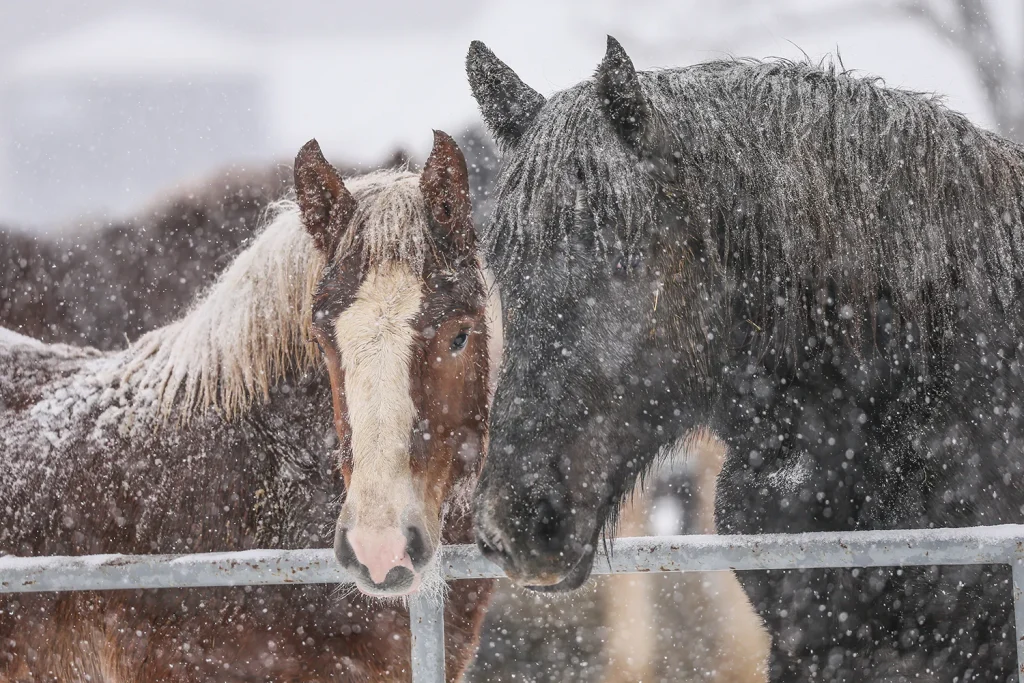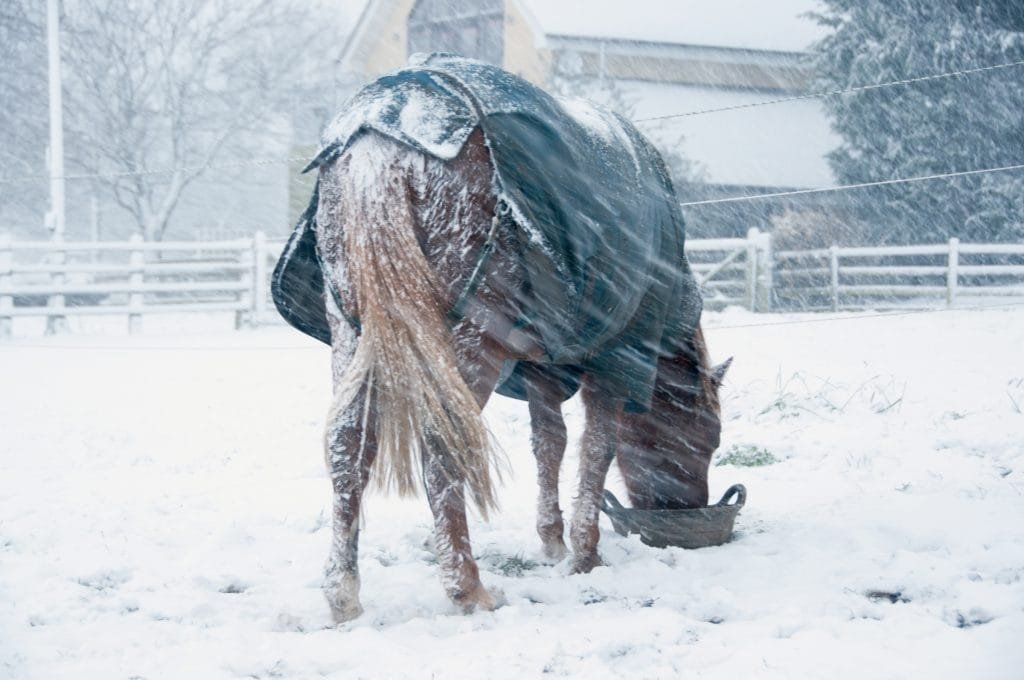Understanding challenges and how to address them can help ensure your horse remains healthy and comfortable throughout the winter months.
managing their body condition during this time requires extra attention and care. As temperatures drop and the weather becomes harsher, horses face different challenges that can impact their overall health and well-being.
Impact of Cold Weather
Cold weather increases the energy demands on horses. To maintain body heat, horses need more calories. Their metabolism works harder to keep them warm, which can lead to weight loss if their caloric intake isn’t adjusted accordingly. This is particularly true if the horse is exposed to wet or windy conditions, as these can further increase their energy needs.
Dietary Adjustments
One of the primary ways to support your horse through winter is by adjusting their diet. Forage is crucial for winter feeding. High-quality hay should be the mainstay of their diet, as it provides the necessary fiber and helps in maintaining body heat. If the hay quality is poor, it may lack the nutrients needed for maintaining condition. In such cases, consider supplementing with grains or fortified feeds to ensure your horse is getting adequate nutrition.
It’s important to provide forage in sufficient quantities. Horses have a natural instinct to graze throughout the day, so offering hay in ample amounts helps mimic their natural feeding behavior and supports their digestive system. If hay isn’t available in sufficient quantities, you may need to provide additional feed.
Monitoring Body Condition
Regularly assessing your horse’s body condition is crucial during winter. Use a body condition scoring system that ranges from 1 to 9, where 1 represents emaciation and 9 represents obesity. The goal is to maintain a score between 5 and 6, which indicates a healthy weight.
Check your horse’s body condition by feeling along the ribs, spine, and hips. You should be able to feel the ribs without pressing too hard, and there should be some fat covering over the ribs, spine, and hips. If your horse feels too thin, they might need more food or a better-quality diet. Conversely, if they seem to be gaining excess weight, you might need to reduce their feed or increase their exercise.

Shelter and Warmth
Providing adequate shelter is essential in winter. Horses need a place to get out of the wind, rain, and snow to stay dry and warm. A well-built shelter can significantly reduce the energy they need to keep warm. Ensure that the shelter is clean, dry, and well-ventilated. It should be large enough for all your horses to move around comfortably, and free from drafts or leaks that could compromise their warmth.
In extremely cold conditions, you might also consider using blankets or sheets. These can help retain body heat, especially for older horses or those with a thinner coat. Make sure any blankets are clean, dry, and properly fitted to avoid causing discomfort or rubbing.
Exercise and Activity
Exercise remains important even during winter, but it should be adjusted according to weather conditions. Snow and ice can make the ground slippery, increasing the risk of injuries. If the ground is unsafe, consider using an indoor arena or a well-maintained, enclosed area for exercise.
For horses that are not being ridden regularly, try to provide some form of daily activity to prevent muscle loss and keep them mentally stimulated. This could be in the form of groundwork, lunging, or other safe activities that do not require riding.
Hydration
Proper hydration is as crucial in winter as it is in summer. Horses still need plenty of fresh, clean water, even when it’s cold. Frozen water sources can be a problem, so use water heaters or insulated buckets to keep water from freezing. Check their water supply frequently to ensure they have access to water at all times. Sometimes, horses drink less in winter due to the cold, so monitoring their water intake is important.
Special Considerations
Older horses, those with health issues, or horses that are recovering from illness or injury may have additional needs during winter. Older horses, for example, may have difficulty maintaining weight and may require more feed or special supplements. Always consult with your veterinarian to tailor a care plan specific to their needs.




